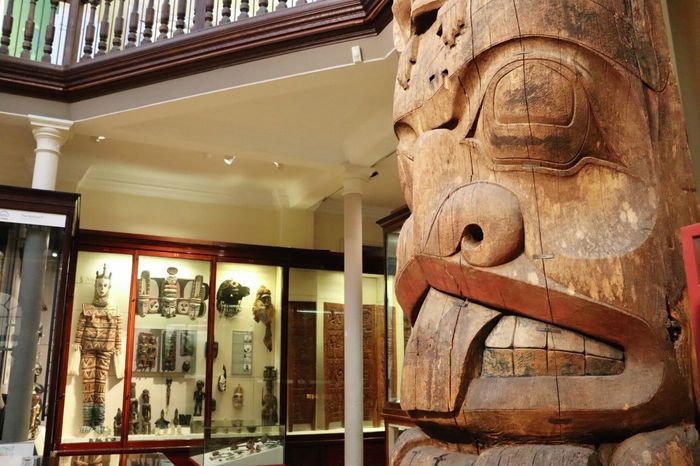The new History tripos is a step in the right direction
Eloise Thompson argues that History tripos reforms begin to address the University’s colonial past

In Michaelmas of 2022, the History Faculty launched its new tripos, which hadn’t been given a makeover since the 1960s. Among its novelties was the possibility to stray away from the classic fields of British and European history, with the creation of new papers focused on so-called “decentralised histories”. The vast majority of papers have retained their British and European focus, but this was a step in the right direction.
"The Global South paper is not necessarily unique in its chronological broadness, but the vastness of the geographical area it covered"
As a fresher, I chose to study one of these 'new' papers called 'The Global South from 1750 to the present day'. First year papers are meant to be broad; some, like ‘the Twentieth Century World’, cover whole centuries, whilst others such as ‘Ancient and Medieval States’ cover an entire millenium. The Global South paper is not necessarily unique in its chronological broadness, but the vastness of the geographical area it covered and the similarity that this attributed to the different regions it was concerned with, struck me as problematic.
The ‘Global South’ was coined by French economist Alfred Sauvy in the 1950s to refer to the development gap between most countries in the Northern hemisphere and those in the Southern hemisphere. To my surprise, in our initial lectures, the very first thing we were told was how problematic this term was. Using a single, all-encompassing term to refer to hundreds of different countries all characterised by a singular culture, language, and history but also by different wealth and development levels supposes homogeneity where it does not exist. It undermines these countries’ identities through the lens of an imperialist Western world.
Of course, calling the paper 'The Global South' sounds better than calling it 'The Third World' or 'The Developing World', but don’t these terms all lead to the same prejudice? They are all arbitrary terms that carry a heavy political load. I know I was not the only one in the lecture that day to wonder why, if the term was so problematic, it had been used to describe the course.
The course itself confirmed the problematic use of the term 'Global South'. Although the course’s name claims to cover the entirety of 'The Global South', it focused 'only' on Africa and (what is now) India. This was questionable in two ways. First of all, it neglects other regions of the so-called 'Global South', namely South America and other regions of Asia. To avoid using any problematic term, especially if the course is only focused on specific areas, maybe it could have simply been named 'Africa and India from 1750 to present day'.
Most importantly, our essays and supervisions tasks were centred on the comparison between Africa and India. Ironically, we were learning in those same supervisions how Indian subjects were considered by British colonial officers to be more 'civilised' than African ones, all the while being asked to compare an entire continent (approximately 9 times bigger than India), with one singular country.
"Comparing India and Africa often poses the risk both of blurring the latter’s vastness, and therefore the diversity of its colonial history"
The outline is therefore simultaneously homogenising the 'Global South' and Africa itself. I am not suggesting that there is no point in comparing and contrasting the different forms taken by British colonialism in these regions. On the contrary, I found comparison often made concepts and events easier to understand. However, comparing India and Africa often poses the risk both of blurring the latter’s vastness, and therefore the diversity of its colonial history. It also undermines South Asia's cultural richness because of its smaller size and more uniform administration by the British government.
That being said, the course is immensely interesting, and, like all other outline papers in first year, serves mostly as an introduction to a certain area and period of history. Proof of an effort by the faculty to 'decolonise' itself, it makes new kinds of histories available to first years so that they can pursue these subjects more in depth later on in their course. However, its construction goes to show how much progress needs to be made in the making of African history papers, something which is made all the more urgent by the discovery of countless African artefacts held by the university since the days of colonisation.
Want to share your thoughts on this article? Send us a letter to letters@varsity.co.uk or by using this form.
 News / CUP announces funding scheme for under-represented academics19 December 2025
News / CUP announces funding scheme for under-represented academics19 December 2025 News / Cambridge welcomes UK rejoining the Erasmus scheme20 December 2025
News / Cambridge welcomes UK rejoining the Erasmus scheme20 December 2025 Comment / Yes, I’m brown – but I have more important things to say22 December 2025
Comment / Yes, I’m brown – but I have more important things to say22 December 2025 News / SU reluctantly registers controversial women’s soc18 December 2025
News / SU reluctantly registers controversial women’s soc18 December 2025 Film & TV / Timothée Chalamet and the era-fication of film marketing21 December 2025
Film & TV / Timothée Chalamet and the era-fication of film marketing21 December 2025









